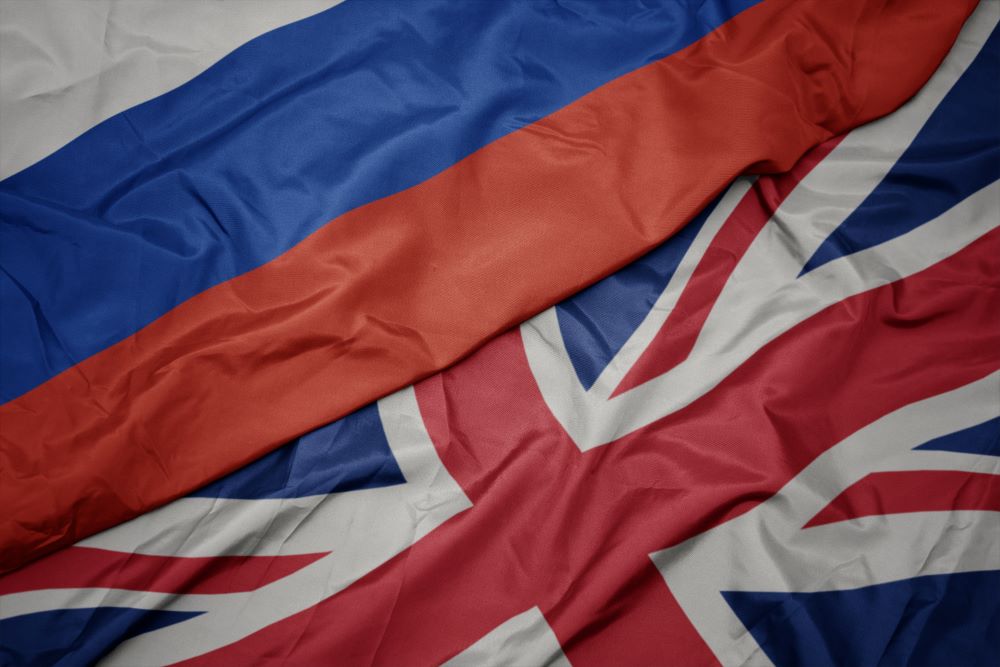
Imports of goods from Russia to the UK have tumbled to their lowest level since records began in 1997, new government data released today (24 August) has found.
According to an Office of National Statistics (ONS) report on the impact of western sanctions on UK trade with Russia, both imports and exports have experienced a drastic drop-off in recent months.
The UK, EU, US and other allies imposed far reaching sanctions on Russia following its invasion of Ukraine in February.
Exports
The value of goods exported to Russia from the UK rose slightly in June to £83m – this number being attributed to medicinal and pharmaceutical sales which are exempt from sanctions – but overall exports remain low.
When compared to the monthly average for the 12 months before the Russian invasion of Ukraine in late February 2022, the value of goods exported to Russia fell by 66.9% (£168m.)
According to Sky News, there has been a significant drop in exports of most commodities, with machinery and transport equipment among the worst affected, falling by 91%.
Imports
Imports of goods into the UK from Russia fell to £33m in June, driven partly by a complete drop off in purchases of fuel.
The data found that June was the first month since records began that the UK imported no fuel from Russia, with the UK government having previously promised to phase out imports of Russian oil in favour of other sources.
Overall, this represented a 96.6% drop in total imports compared to the average monthly imports across the 12 months to February 2022.
In 2021, before the war in Ukraine, Russia was the UK’s single largest supplier of refined oil, reports the Independent.
Traders self-sanctioning
According to the ONS, a key driver of the fall in trade was traders ‘self-sanctioning’ – voluntarily looking for alternatives to Russian goods even when there were no formal export controls in place for the items in question.
Roger Arthey, chair of the IOE&IT’s Export Control Profession told the IOE&IT Daily Update that the ONS figures “indeed suggests that the reductions are likely to have been driven by the economic sanctions, combined with self-sanctioning.”
“However, what this information does not reveal is the magnitude of the impact of these reductions on the businesses which normally trade with Russia, or the overall effect on the economy of the UK as a whole,” he added.
Sanctions avoided
Politico reports warnings from Western diplomats that Russia is planning to use Iran as a ‘backdoor’ to circumvent Russian sanctions.
Turkey has also doubled its imports of Russian oil this year, with general trade between the two countries seeing a sizeable increase, according to Reuters.
IOE&IT support
The IOE&IT is working directly with government to ensure traders have access to information and advice about the sanctions the UK has imposed on Russia.
The IOE&IT continues to update its members on the latest news through the Daily Update and hosted a free ‘How to comply with sanctions on Russia’ webinar in March.
For more information about the IOE&IT’s support around Russia sanctions, click here.


